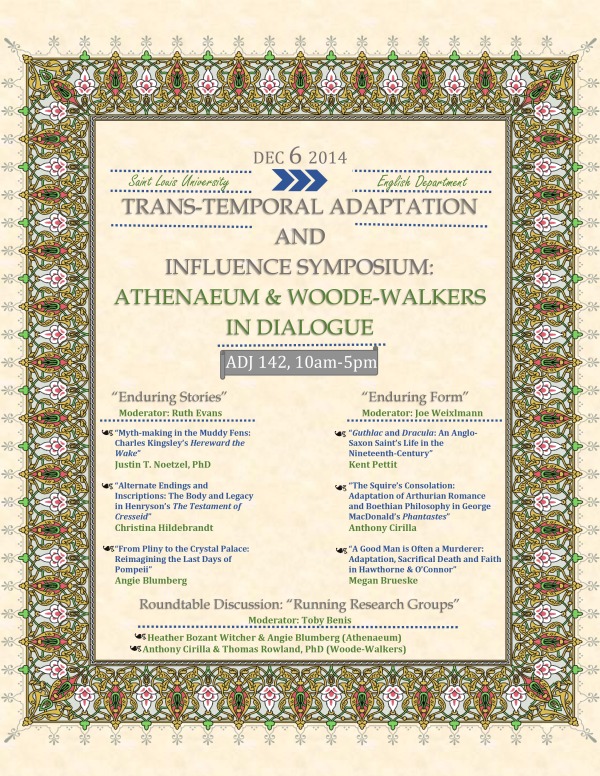Conference Organizers: Angie Blumberg, Heather Bozant Witcher, Anthony Cirilla, and Colin Pajda
Schedule:
- 10am-12:30pm–Enduring Stories
- 12:30-1:30pm–Lunch at Diablitos
- 1:30-3pm–Enduring Form
- 3:30-5pm–Roundtable
“I have always been a great admirer of the calligraphy of the Middle Ages,” wrote William Morris in 1898 in his Aims in Founding the Kelmscott Press. In an effort to preserve their medieval heritage, Victorian writers rewrote their past, reproducing and reinventing medieval literature, themes, and ideals. These adaptive influences led to a renewed sense of English nationalism and community, witnessed in the 1816 reprinting of Thomas Malory’s Le Morte d’Arthur and in the Eglinton Tournament of 1839, a Victorian re-enactment of knightly jousting.
The Middle Ages, too, was a period of adaption of the past in a variety of modes; as with the Victorian adaptation of the Middle Ages, this reappropriation of earlier periods ranged from the subtle to the sarcastic, the academic to the farcical. Just as the nineteenth century reworked medieval images, ideas and narratives of the Middle Ages, so too the Middle Ages adapted Greco-Roman concepts, figures, and stories to both reverent and irreverent, successful and unsuccessful ends.
The English Department at Saint Louis University is home to two popular research groups: Athenaeum, which focuses on the transatlantic long 19th-century, and the Woode-Walkers, which focuses on medieval literature. On December 6, 2014 in Adorjan 142, the two research groups will join forces to co-sponsor a one-day symposium. We seek to discuss this adaptive impulse in medieval, nineteenth-century, and other literatures, as well as the theory and method of adaptation itself.

